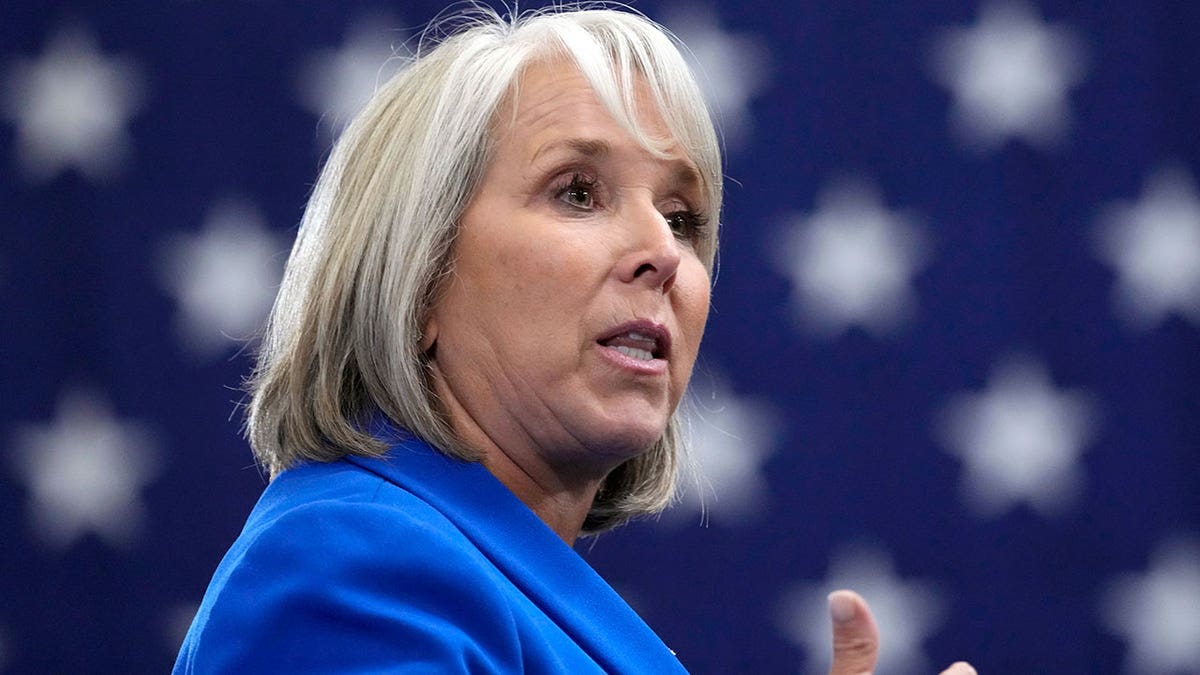New Mexico woman shocked to find her Hydro Flask untouched after car fire
Chrishanna Juan was stunned to see that her Hydro Flask water bottle survived a car fire. See the moment firefighters pulled the untouched, stainless steel bottle out of her destroyed vehicle.
- Environmental activists have opposed Gov. Michelle Lujan Grisham's initiative in New Mexico aimed at financing the treatment and recycling of oil-industry wastewater.
- Critics say that the plan relies on unproven technologies and may lead to more water-intensive fracking for oil and natural gas.
- Grisham seeks legislative and regulatory changes to allow the state to develop a new source of water by buying and selling treated water.
Environmental activists pushed back Monday against an initiative from the governor of New Mexico that would finance the treatment and recycling of oil-industry wastewater, warning that the plan relies on unproven technologies and might propel more water-intensive fracking for oil and natural gas.
Democratic Gov. Michelle Lujan Grisham is seeking legislation and regulatory changes that would allow the state to finance development of a strategic new source of water by buying and selling treated water that originates from the used, salty byproducts of oil and natural gas drilling or from underground saltwater aquifers.
The aim is to help preserve freshwater sources by providing a new source of recycled water for industrial uses, at the same time helping an arid state attract businesses ranging from microchip manufacturers to hydrogen fuel producers.
An array of environmental and social-justice groups gathered outside the Statehouse to denounce the governor's plan as a handout to the oil and natural gas industry that won't necessarily decrease pressure on the state's ancient underground aquifers.

Democratic New Mexico Gov. Michelle Lujan Grisham speaks on Aug. 9, 2023, in Belen, New Mexico. Grisham's proposal underwrite the treatment and recycling of oil-industry wastewater is being denounced by environmentalists. (AP Photo/Alex Brandon, File)
"It's intended to help oil and gas producers, particularly in the Permian Basin, to resolve their enormous problem with wastewater disposal and allow for continued extraction" of petroleum, said Mariel Nanasi, executive director of the environmental and consumer protection group New Energy Economy.
Julia Bernal, executive director of the environmental justice group Pueblo Action Alliance, sees the initiative as an attempt to secure more water supplies for the production of hydrogen.
Hydrogen can be made by splitting water with solar, wind, nuclear or geothermal electricity yielding little if any planet-warming greenhouse gases. But most hydrogen today is not made this way and does contribute to climate change because it is made from natural gas.
"We would like to see more investment in wind and solar, more community based projects," said Bernal, a tribal member of Sandia Pueblo.
NEW MEXICO GOV. GRISHAM PROPOSES PLAN TO TURN OILFIELD WASTE INTO CLEAN WATER SUPPLY
Inside the Capitol, state Environment Department Secretary James Kenney briefed a state Senate budget-writing on the administration's plan to underwrite the project with up to $500 million in bonds over a two-year period, to spur private investment in water-treatment and desalination infrastructure.
Approval from the Legislature is necessary under a construction-spending bill that has not yet been introduced. The state's annual legislative session ends on Feb. 15.
The Environment Department is proposing a new regulatory framework for reusing oil-industry wastewater and desalination of naturally occurring brine. On Monday, it also announced a related request for technical and economic briefings by people in business, academia, government agencies — or other interested individuals.
New Mexico has extensive underground reservoirs of salty water that have been of limited use. That brackish water is a crucial component in hydraulic fracturing, or fracking, and advanced drilling techniques that have helped turn New Mexico into the No. 2 oil production state in the U.S.











































